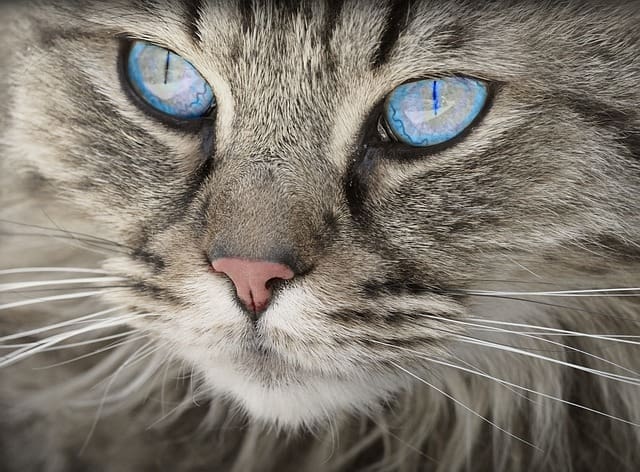As science and technology advance, people have been more fascinated by the ancestry and DNA of their pets, especially cats. Simply put, DNA testing has shown to be a very advantageous scientific innovation, and this advantage now extends to your pets.
Hence, various DNA testing brands, like Orivet, offer this kind of offer to pet owners. Because this type of DNA testing will determine whether your pet is prone to, consider the cat DNA tests.
How Does DNA Test for Cats Work?
DNA testing kits differ in their process depending on what brand you choose, but generally, it involves you swabbing the inside of your cat’s cheek for a few seconds for you to have a sample of their DNA. Next, you place the cheek swab in the given container and give the DNA sample to the lab for analysis.
How Accurate Are Cat DNA Tests?
Since cat DNA testing is pretty recent and still developing, the findings will be only partially accurate. It’s not 100% accurate. Still, they may provide a solid beginning point, meaning that if the test reveals that your cat may be prone to a certain medical problem, you and your veterinarian may get a head start on any necessary testing to eliminate the possibility.
What Can Cat DNA Test Reveal?
Your Cat Ancestry
DNA tests can help you discover what cat breeds your feline companion has. You will be able to find out if your cat is a purebred, like a Persian cat or Maine coon, or a mixed breed, simply a combination of various cat species in your cat’s breed composition. Here are some of the breeds that DNA testing includes.
Eastern Breeds
- Siamese
- Burmese
Western Breeds
- Turkish Van
- Siberian Forest Cat
- Russian Blue
- American Shorthair
- Ragdoll
Exotic Breeds
- Egyptian Mau
- Bengal
- Savannah Cat
Possible Medical Conditions
DNA testing can detect if there are any inherited diseases your cat has. As a result, you and your veterinarian can take early preventive measures. And for purebred cat breeders, this can allow them to separate high-risk cats from low-risk cats in the breeding group. Below are some types of diseases that DNA testing can check.
- Progressive Retinal Atrophy
- Mucopolysaccharidosis
- Polycystic Kidney Disease
- Spinal Muscular Atrophy
- Hypertrophic Cardiomyopathy
- Pyruvate Kinase Deficiency
- Glycogenosis
Coat Length
Knowing how long your cat’s coat can get is also possible with the help of DNA testing, allowing you to know if your cat has a longhaired gene for long hair. In DNA testing, you can know if your cat has a gene for long hair if it carries both genes from its parent. Below are references that can be seen in the DNA test results.
- SS – Shorthaired Cat
- Ss – Shorthaired Cat carrying the longhair gene from a parent
- ss – Longhaired Cat
Your Cat’s Other Features and Behaviors
One of the most basic things a cat DNA kit may help cat owners with is by giving information on their feline companions’ genetic markers and composition. And this enables you to determine various characteristics of your cat’s breed, including the coat color, type, and blood type.
Understanding the gene collection of your cat and finding the genetic variations that cause these qualities may also improve your understanding of your cat’s behavior throughout time.
Advantages Of Getting DNA Testing For Cats
1. Can Avoid Possible Diseases
With a DNA test for your cat, you will be able to act quickly and get them to do regular check-ups and seek the advice of your vets to prevent the illness from growing. Remember that prevention is better than any treatment.
2. Improved Quality of Life
By understanding your feline’s background and behaviors, you can improve their quality of life and give better care. For instance, if your cat is liable to obesity, you can prevent it by giving them a balanced and nutritional diet and walking with them as an exercise routine to keep them healthy and active.
3. Determine If Your Cat is Suitable for Breeding
Since genetic details are passed from parent to child half at a time, it is a must to have DNA testing before breeding so that the next generation will be safe from having any hereditary diseases.
4. You Can Make Better Decisions
You can make informed decisions about your cat’s lifestyle by analyzing your feline companion’s chromosomal map, genetic markers, and the numerous behaviors and characteristics examined.

How To Select A Suitable Cat DNA Test?
Always consider your objectives while choosing which DNA test to purchase for your pet. Having a goal for what you want to learn helps save you from wasting money on tests that may provide uninteresting findings.
Have Your Cat Get DNA Testing
DNA testing on cats is a new field of study, and its technology is continually advancing. In the end, even though you won’t be able to determine with absolute certainty the breeds that make up your cat’s lineage, you will still learn more about your feline DNA and receive new and interesting facts about them.
Featured Image by Anja from Pixabay




